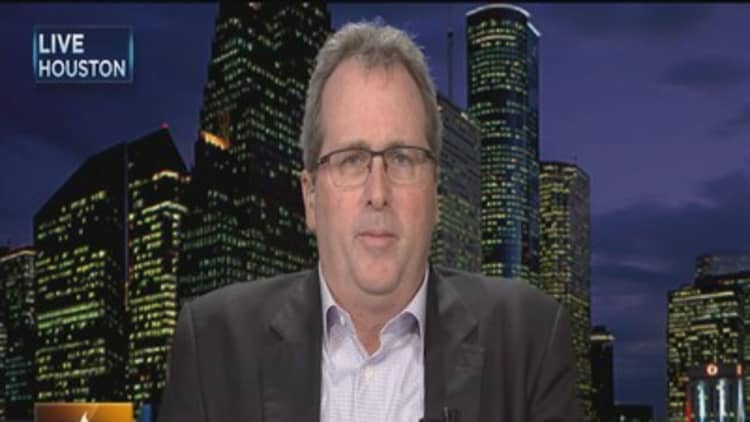
The growth in the world's demand for oil is set to slow next year amid an "unrelenting" oversupply of crude, according to the International Energy Agency (IEA), in a report that could pile more pressure on already tumbling oil prices.
The IEA said the "first signs of a slowdown" in global oil demand had been seen in the fourth quarter of 2015, in its latest report published Friday.
"Global demand growth of 1.2 mb/d (million barrels per day) is forecast in 2016, a notable slowdown from this year's five-year high as many of the factors that contributed to a rapid increase in oil use are likely to prove temporary," the monthly report from the IEA said
Early indicators for the fourth quarter of 2015 show growth easing to 1.3 mb/d year-on-year from a third quarter peak of 2.2 mb/d, the IEA noted. The IEA added that weaker U.S. demand conditions since September were "a key contributor to the downside."
Lion's share
Benchmark crude prices approached seven-year lows in early December after OPEC opted to continue producing at record levels to defend its market share. In fact, the IEA said that in November, OPEC accounted for the "lion's share of the growth" in global oil supplies.
On Friday, both benchmark Brent crude and WTI were trading below 40 dollars a barrel as the supply of oil, which has outpaced demand, continued. Oil prices have tumbled over the last 18 months, from a high of $114 last June to their current levels on a glut in supply outpacing demand. On Friday, Russian's deputy finance minister issued a stark warning of $40-$60 oil "for the next seven years," Reuters reported.
The price crash was exacerbated by the 12-member oil producing group, which is led by Saudi Arabia, deciding not to cut production to support prices. A move largely seen as designed to put pressure on rivals, particularly shale oil producers in the U.S.
Just as global oil demand growth was showing signs of a slowdown, the global oil supply inched up in November, according to the IEA, to reach 96.9 mb/d "on slightly higher OPEC crude output."
"Total supplies stood 1.8 mb/d above a year ago, with OPEC accounting for the lion's share. Non-OPEC supply held at 58.5 mb/d in November, but annual growth slowed to below 300 kb/d from 2.2 mb/d at the start of 2015."
Nonetheless, the IEA noted that despite the price drop and slowing demand growth, OPEC crude output edged 50,000 barrels a day higher in November to 31.73 mb/d "with record production from Iraq and higher supply from Kuwait offsetting losses from African members."
OPEC 'driving out' rivals
It's been a terrible week for oil prices which have fallen further since OPEC's decision last Friday to not cut production, a move which would have supported prices. In deciding not to cut, OPEC signaled that it was content to keep output at record levels of at least 30 million barrels a day, a level often exceeds as evidenced by monthly output data.
The IEA responded to that decision, saying the "move appears to signal a renewed determination to maximize low-cost OPEC supply and drive out high-cost non-OPEC production – regardless of price."
On Thursday, OPEC said in its latest monthly report that non-OPEC oil supply would contract further in 2016, a far cry from the "the tremendous growth of 2.23 million barrels a day achieved in 2014."
The IEA noted that "there is evidence the Saudi-led strategy is starting to work."
"Lower prices are clearly taking a toll on non-OPEC supply, with annual growth shrinking below 0.3 mb/d in November from 2.2 mb/d at the start of the year. A 0.6 mb/d decline is expected in 2016, as US light tight oil – the driver of non-OPEC growth – shifts into contraction."
"As companies make further spending cuts in reaction to sub-$50/bbl oil, the impact on supplies – both from non-OPEC and OPEC - will be even more pronounced in the longer term."
- By CNBC's Holly Ellyatt, follow her on Twitter @HollyEllyatt.




